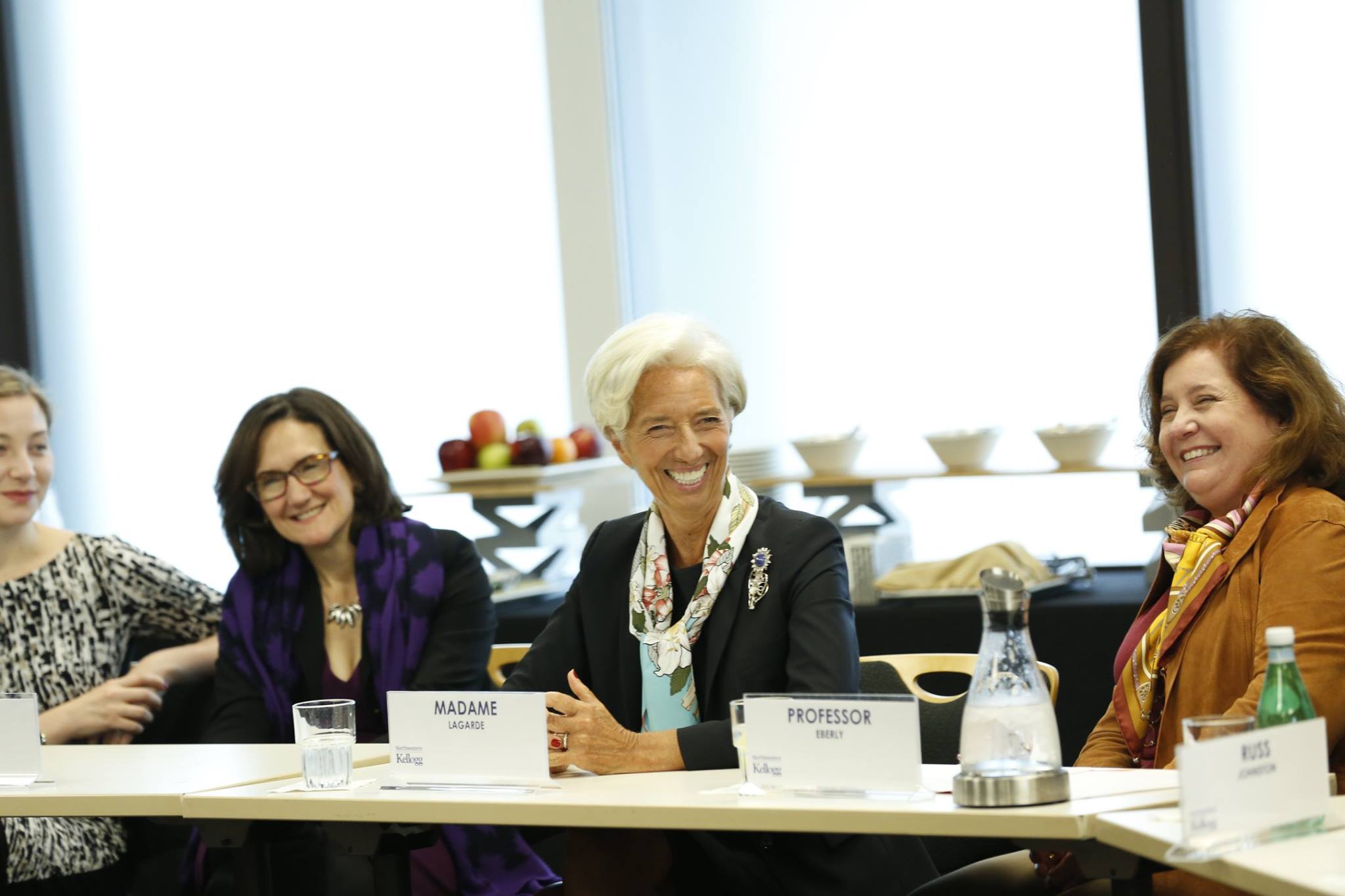Women in leadership: Lessons from my conversation with Christine Lagarde, Managing Director of the IMF

Last month, Kellogg had the honor of hosting Christine Lagarde, managing director of the International Monetary Fund (IMF). After a school-wide lecture, 30 students, including myself, had the unique opportunity to attend an intimate roundtable discussion with Madame Lagarde. The conversation primarily focused on women in leadership and the IMF’s international finance policies. Both topics are near and dear to my heart, as I am passionate about international finance and hope to one day lead an organization.
Madame Lagarde began the roundtable discussion with the observation that women leaders are frequently called upon in difficult situations. She cited Iceland and the United States Federal Reserve as examples where women came into challenging economic situations and thrived with their intelligence and attentiveness. She mentioned Angela Merkel several times, noting that Merkel was the most welcoming to smaller and newer nations’ leaders at the last G20 Summit.
Madame Lagarde shared her personal story as well. As the oldest of many boys in her family, she didn’t perceive or encounter discrimination until later in life, when she interviewed at a law firm and was told that women couldn’t make partner status. This anecdote resonated with me, as I am entering the corporate law industry after graduation, where there is still a disparity between the number of male and female senior leaders.
Madame Lagarde advised women in law (and in similar industries) to avoid deliberately hostile environments and to seek opportunities where women can demonstrate their leadership skills. She added that everyone plays a role in building women leaders. In France, there is a program where top banks pledge not participate in financial industry events with organizations that do not include women at the highest levels. I was impressed by this initiative – to me, that’s putting your money where your mouth is!
Madame Lagarde focused her international policy message on the importance of open trade in global markets. I asked her a question about the trade implications of Brexit since I will be working for Davis Polk & Wardwell in London after Kellogg. She explained that while it was too early to tell what will happen, trade between the European countries and the general financial sector will be hurt. She mentioned the Brexit referendum vote was somewhere between “bad” and “very bad”. I was working in London this summer when the referendum passed, and very few people in the corporate bubble believed it would pass. Clearly, we underestimated the magnitude and opinions of those outside of London.
During our roundtable discussion, Madame Lagarde also touched upon the use of central banks, the effect of currency flotation and the role of financial intervention, all of which provided real-world examples of the lessons I learned during my International Finance and Global Entrepreneurial Finance courses at Kellogg.
Overall, this once-in-a-lifetime discussion with Madame Lagarde has broadened my perspectives and understanding of the global economy. Furthermore, the leadership advice that Madame Lagarde shared has better prepared me to lead Kellogg’s Private Equity & Venture Capital (PEVC) Club as a director. Most importantly, however, this opportunity has provided a one-of-a-kind experiential learning experience that I can draw upon throughout the course of my business school and professional careers.

Interested in studying economics or finance at Kellogg? Learn about our world-class Finance Department and Managerial Economics and Decision Sciences Department (MEDS) Department.
Grace Cao is in her third year of the JD-MBA program at Northwestern’s Kellogg School of Management and Pritzker School of Law. At Kellogg, she is a director of the Private Equity & Venture Capital Club and is pursuing finance and accounting majors. Upon graduation, she will be practicing corporate law at Davis Polk & Wardwell in London.
